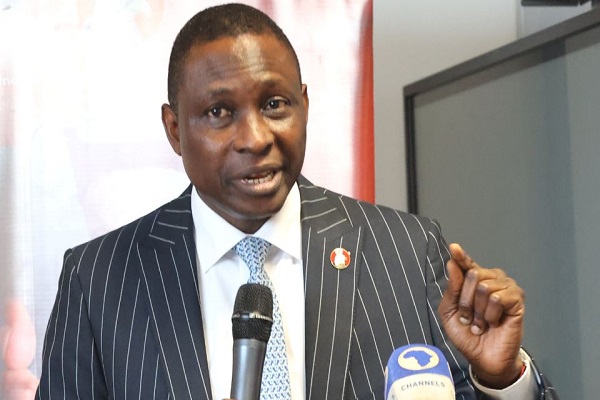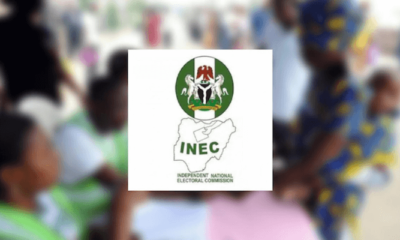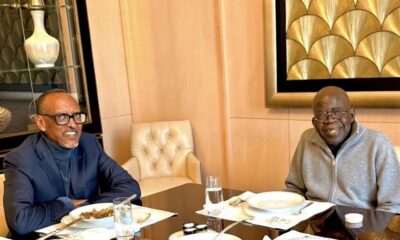News
BREAKING: EFCC Bans Dollar Transactions, Orders Embassies To Charge In Naira
Dollar Transactions: EFCC urges Nigerian government to halt embassies from charging visa fees in foreign currency, citing conflict with Nigerian laws and economic policy goals.

Dollar Transactions: EFCC urges Nigerian government to halt embassies from charging visa fees in foreign currency, citing conflict with Nigerian laws and economic policy goals.
This was revealed in a letter to the Minister of Foreign Affairs, Amb. Yusuf Tuggar.
The Economic and Financial Crimes Commission (EFCC) has called on the government to prohibit foreign missions in Nigeria from accepting payment for visa and other consular services in foreign currencies.
Additionally, it has recommended that all embassies adhere to Nigeria’s exchange rate regulations when determining the cost of their services.
According to the EFCC, allowing consular services to be paid for in foreign currencies undermines Nigeria’s monetary policies and its goals for sustainable economic growth.
The advisory was communicated in a letter addressed to the Minister of Foreign Affairs, Amb. Yusuf Tuggar, with instructions for dissemination to all foreign missions operating in the country.
While some diplomatic sources have questioned whether the EFCC’s advisory reflects the official stance of the Federal Government, the commission reiterated in its letter that the practice of accepting payments in foreign currencies for consular services is contrary to Nigerian laws and financial regulations, particularly Section 20(1) of the Central Bank of Nigeria Act, 2007.
It clarified that Section 20(1) makes Naira “the only legal tender in Nigeria.”
The advisory, signed by the EFCC Executive Chairman, Mr. Ola Olukoyede, reads in part: “…I wish to notify you about the commission’s observation, with dismay, regarding the unhealthy practice by some foreign Missions to invoice consular services to Nigerians and other foreign nationals in the /country in United States Dollar ($).
“This practice is an aberration and unlawful as it conflicts ‘with extant laws and financial regulations in Nigeria. Section 20(1) of the Central Bank of Nigeria Act, 2007 makes currencies issued by the apex bank the only legal tender in Nigeria.
“It states that “the currency notes issued by the Bank shall be the legal tender in Nigeria on their face value for the payment of any amount”.
“This presupposes that any transaction in currencies other than the naira anywhere in Nigeria contravenes the law and is therefore, illegal.”
The commission added: “The refusal by some Missions to accept the Naira for consular service in Nigeria and also comply with foreign exchange regulatory regime in fixing the exchange of the cost of their services is not only illegal, but represents an affront on the country’s sovereignty symbolized by the national currency. It undermines Nigeria’s monetary policy and aspiration for sustainable economic development.
“This trend can no longer be tolerated, especially in a volatile economic environment where the country’s macroeconomic policies are constantly under attack by all manner of state and non-state actors.
“In light of the above, you may wish to convey the commission’s displeasure to all Missions in Nigeria and restate Nigeria’s desire for their operations not to conflict with extant laws and regulations in the country.
“Please accept, as always, the assurances of my highest consideration and respect.”
No official of the Ministry of Foreign Affairs or the EFCC was willing to speak with our correspondent on the advisory.
A diplomat said: “I a circumstance like this; we will engage the Federal Government through diplomatic channels. Our respective countries will also open diplomatic talks with your government.
‘There are some clauses in bilateral and multilateral agreements which may be revisited too. It is premature to speak on this advisory.”
























You must be logged in to post a comment Login